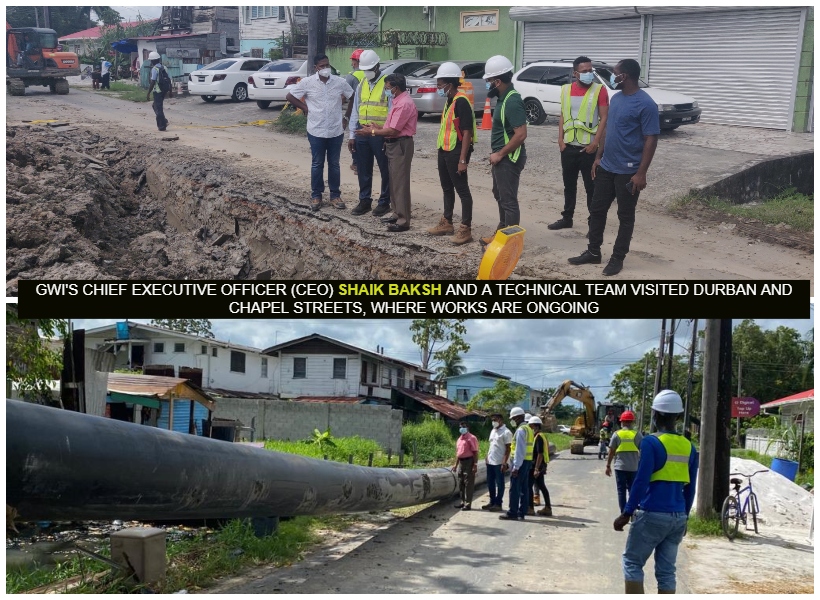The Guyana Water Incorporated (GWI)’s three-month Cemetery Project is already 30 percent complete after commencing just over a week ago. On Friday, the company’s Chief Executive Officer (CEO) Shaik Baksh and a technical team visited Durban and Chapel Streets, where works are ongoing.
The CEO expressed satisfaction with the pace at which the project is progressing. To date, 345 meters of 22-inch HDPE transmission lines have been laid from Hadfield Street & Vlissengen Road to along Chapel Street, over Durban. The full length of mains to be installed is 940 meters.
After interacting with some of the residents within the area, Baksh noted that he is particularly happy that they have not had any complaints about inconvenience.
Ginette Lafleur, who owns a snackette on Chapel Street and has been living there for about a decade, noted that she is thankful for the upgrade of the water distribution system and that the works have not negatively impacted her business.
Another resident of the area by the name of Jim Weekes, also praised the team for the seamless job.
The CEO and GWI’s Executive Director of Projects, Aubrey Roberts also took the opportunity to meet with Mr. Christopher Lord – Manager of Sandy’s Funeral Home, as their business sits in the midst of the project area. Lord related his satisfaction with the communication from the Contractor and GWI Engineers and the organized way in which the works are being carried out. One particular request from Lord was for the trees near his business to remain, to which the workers complied.
Traffic diversions have also been limited, with adequate notice of same.
GWI will continue to work to ensure the smooth completion of the Cemetery Road project within the specified timeline. It is being funded by the Government of Guyana to the tune of approximately of GYD$200M.
Baksh reiterated that all damages to the road and property will be reinstated by the utility.
The objective of the project is to replace old transmission mains along Vlissengen and Cemetery Roads that are more than 60 years old to reduce the risk of frequent breakages, costly emergency repairs and disruption of service.













